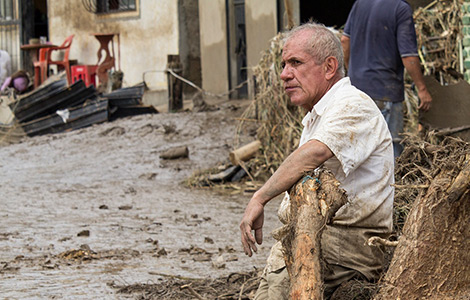Statutory declarations
This FAQ covers what a statutory declaration is and how you can make one. This can be helpful if you need to replace or request important documents without a form of photo ID.
What is a statutory declaration?
A statutory declaration is a formal way to provide evidence. It is a written statement that is signed and witnessed by an official person. This process makes the statement a legal document, which can be used in court or for other official purposes.
Only certain people are allowed to witness statutory declarations as an official person: see “Who is authorised to witness my statutory declaration?” below.
When do I need to make a statutory declaration?
A statutory declaration is used to confirm that something is true.
For example, if you lose important identity documents, you can use a statutory declaration to give evidence about your identity when applying for new ones. If your belongings are damaged by natural disaster, your insurance company might ask for a statutory declaration as evidence of the things that were damaged.
In both of those examples, the statutory declaration is important because it gives you a way to “prove” something is true when you don’t have any other official evidence.
Where can I find a statutory declaration form?
You can download free statutory declaration templates online, here (or, go to govt.nz and search “statutory declaration”). There is space on the template to include the details of the thing you want to declare. You shouldn’t sign the statutory declaration until you meet with the authorised person, who will witness it – they need to see you signing the statutory declaration for it to be a valid document.
Do I need a lawyer to prepare a statutory declaration?
You can prepare a statutory declaration on your own, using a free statutory declaration template from the government website, here (or, go to govt.nz and search “statutory declaration”). You can also write one yourself. The information that you need to include is:
Your full name, and
Your address, and
Your occupation, including if you’re unemployed, and
The facts you are declaring as true
When you meet with the authorised person, you’ll then add your signature, their signature and the place and date you signed.
You can get a lawyer to help you if you want to, but you’ll usually have to pay a fee for this. You can find a lawyer on the Law Society website: lawsociety.org.nz/for-the-public/get-legal-help.
Do I have to write my statutory declaration in English
Parts of your statutory declaration have to be in English, including:
- the part that sets out your full name, and
- the part that sets out your address, and
- the part that sets out your occupation.
You have to use the words, “solemnly and sincerely declare that” before the facts you are declaring as true.
Other information can be in another language if you choose. The authorised person will have to be able to read and understand it, so you may have to provide a translation.
Who is authorised to witness my statutory declaration?
You can ask a person from any of these groups to witness you signing a statutory declaration:
- a lawyer, or
- a Justice of the Peace, or
- a Court Registrar or Deputy Registrar of the District or High Court, or
- a Notary public.
Where can I find an authorised person?
You can get your statutory declaration witnessed by an authorised person at a Community Law Centre or Citizens Advice Bureau. You can also go into most law firms in New Zealand and ask for a lawyer to witness your statutory declaration. You can also find a list of authorised people in your area online:
- Justice of the Peace (JP): justiceofthepeace.org.nz/page/search
- Barrister or Solicitor: lawsociety.org.nz/registry-lookup
- Notary Public: notarypublic.org.nz/find-a-notary
- Registrar or Deputy Registrar of the District Court or the High Court: justice.govt.nz/contact-us/find-us
Does it cost to get a statutory declaration witnessed?
In most cases, you won’t have to pay a fee to the person who witnesses your statutory declaration. It only takes a few minutes, so authorised people are usually happy to do this for free. They are legally allowed to charge you for their time, so it’s worth calling and asking before you meet with them just in case.
What if the authorised person says no?
Authorised people are legally required to witness statutory declarations, so they shouldn’t say no, unless they wouldn’t reasonably be able to meet with you to complete the process. It’s your responsibility to make sure the information is true, not the authorised person.
Can a family member witness my statutory declaration?
You are legally allowed to have a family member witness your statutory declaration if they are an authorised person, but it’s a good idea to get someone else to do it, if you can.
Can I do the statutory declaration and get it witnessed online?
You can prepare the statutory declaration online, but for the signing and witnessing part, you’ll need a printed copy of the declaration. You have to meet with the authorised person and sign it in person – you can’t use e-signatures or meet over video call.
What if the information in my statutory declaration isn’t true?
It’s your responsibility to make sure your statutory declaration is correct. If you make a false declaration, you may face legal trouble – in some cases, a false declaration can be punishable by a prison sentence.

